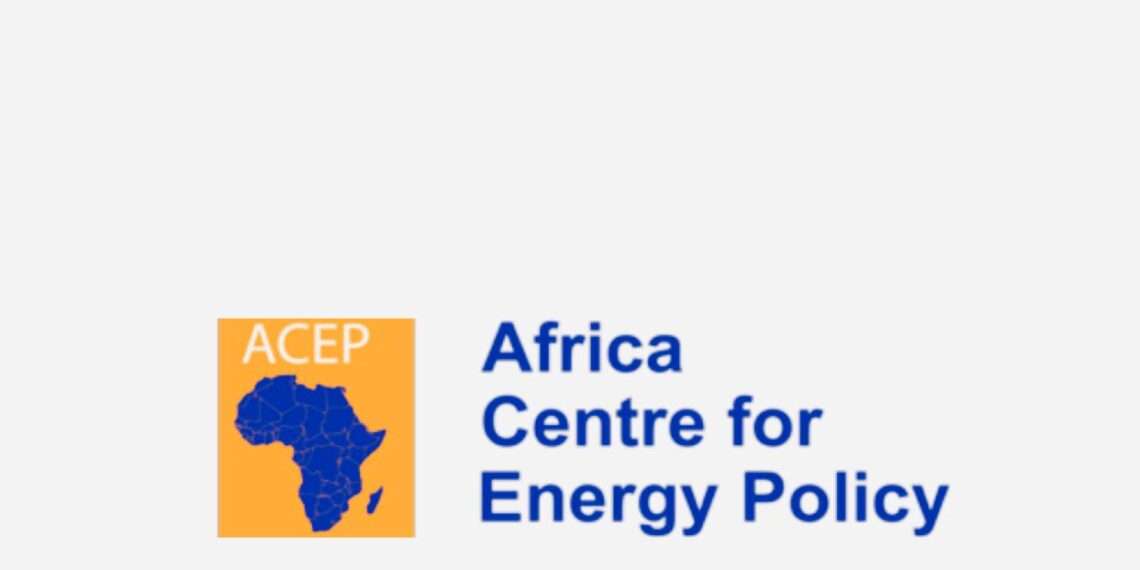The Africa Centre for Energy Policy (ACEP) has issued a strongly worded rebuttal to allegations of bias against local businesses in Ghana’s oil and gas industry, specifically targeting claims made in a widely circulated article by Dr. Paul Herzuah titled “The Endless Struggles of Ghanaian Business (Part 1)”.
In the article, Dr. Herzuah accused ACEP of strategically targeting Springfield Exploration and Production (Springfield E&P) in the controversial unitization case involving Springfield’s Afina-1X field and Eni Ghana’s OCTP field.
“It is important to state that ACEP is not above criticism and remains open to receiving constructive feedback on its work.
“However, we believe the criticism presented in this article blatantly displays the author’s ignorance of how the industry works.”
Africa Centre for Energy Policy (ACEP)
At the heart of Dr. Herzuah’s argument is the assertion that ACEP has consistently targeted Springfield E&P over the Ministry of Energy’s (MoE) 2020 directive requiring Eni to unitize its Offshore Cape Three Points (OCTP) field with Springfield’s Afina-1x field.
According to the author, Eni’s refusal to comply with the directive, citing a lack of geological connection between the two fields and questions over Afina-1x’s commercial viability, was wrongfully challenged by ACEP.
Dr. Herzuah further claims that Ghanaian courts dismissed Eni’s arguments, compelling compliance with the MoE’s directive.
However, ACEP pointed out that these statements misrepresent the facts of the case. While preliminary rulings were made to preserve Springfield’s rights, the substantive case on unitization was never concluded in Ghanaian courts.
Instead, the matter escalated to the International Court of Arbitration, which ruled in favor of Eni in July 2024.
Findings of the International Court of Arbitration

The tribunal’s ruling in favor of Eni highlighted significant procedural and legal shortcomings in the MoE’s directive.
The tribunal concluded that the MoE issued the unitization directive prematurely. According to Ghana’s Petroleum Act, unitization can only be triggered when there is evidence of a single oil accumulation spanning multiple fields.
However, the tribunal found no such determination was made before issuing the directive.
Also, the tribunal found that the directive imposed undue risk on the OCTP partners (Eni and Vitol) by requiring them to bear the burden of appraising Springfield’s field to determine its commerciality.
This, the tribunal ruled, defied the commercial logic underpinning Ghana’s Petroleum Agreement.
Moreover, the tribunal criticized the allocation of initial tract participation percentages—54.545% to Springfield and 45.455% to Eni and its partners—despite the absence of commercially recoverable volumes in Springfield’s field at the time.
These findings align with ACEP’s long-standing position that due process and internationally recognized standards should guide unitization in Ghana’s oil and gas sector.
“It is, therefore, bizarre to see ACEP’s insistence for following due process for an activity (unitization) that is not new to the oil industry globally, or even in Ghana, to be construed as an attack on local businesses.
“Promoting local businesses should not come at the expense of globally accepted standards, especially when Ghana aspires to the reputation as a preferred destination for investment, either foreign or local.”
Africa Centre for Energy Policy (ACEP)
ACEP warned that bypassing established principles could deter future investments and undermine the integrity of Ghana’s oil and gas sector.
ACEP also highlighted broader governance issues in Ghana’s oil and gas sector, citing delays in Springfield’s compliance with regulatory requirements as a case in point.
Following the protracted legal battle, Springfield submitted a re-entry program to the Petroleum Commission in September 2024 to appraise its Afina-1X discovery.
However, ACEP noted that the re-entry exercise conducted in October 2024 did not meet industry standards for appraisal and was plagued by data inconsistencies and excessive costs.
“These challenges are not unique to Springfield but reflect a broader pattern of institutional inefficiency that must be addressed to safeguard Ghana’s energy future,” ACEP stated.
Advocating for Local Content Without Compromising Standards

While ACEP has been accused of favoring foreign businesses, the organization emphasized its commitment to enhancing local participation in Ghana’s oil and gas sector.
Over the years, ACEP has published research and organized forums to address barriers faced by local businesses, including access to capital and capacity building.
However, ACEP argued that achieving meaningful local participation requires more than rhetoric; it demands pragmatic strategies to address the structural and financial challenges inherent in the capital-intensive and high-risk nature of the oil and gas industry.
“Capital cannot simply be wished upon local entities.
“Local businesses must be prepared to meet the technical, financial, and operational standards required in this highly competitive sector.”
Africa Centre for Energy Policy (ACEP)
In its rebuttal, ACEP reiterated its commitment to transparency, accountability, and the rule of law in Ghana’s oil and gas sector.
The organization called on the government to prioritize institutional reforms and strengthen regulatory enforcement to ensure that both local and foreign businesses operate within the framework of Ghana’s laws.
ACEP also urged the media and public to critically evaluate claims that seek to undermine efforts to promote good governance in the energy sector.
“Ensuring transparency and adherence to global standards is not an attack on local businesses—it is a prerequisite for sustainable development and economic prosperity.”
Africa Centre for Energy Policy (ACEP)
ACEP’s insistence on due process and regulatory compliance underscores the importance of balancing local content promotion with global best practices.
READ ALSO: NDC Ashanti Region Commends President Mahama for Key Nominations






















